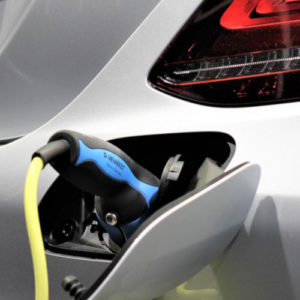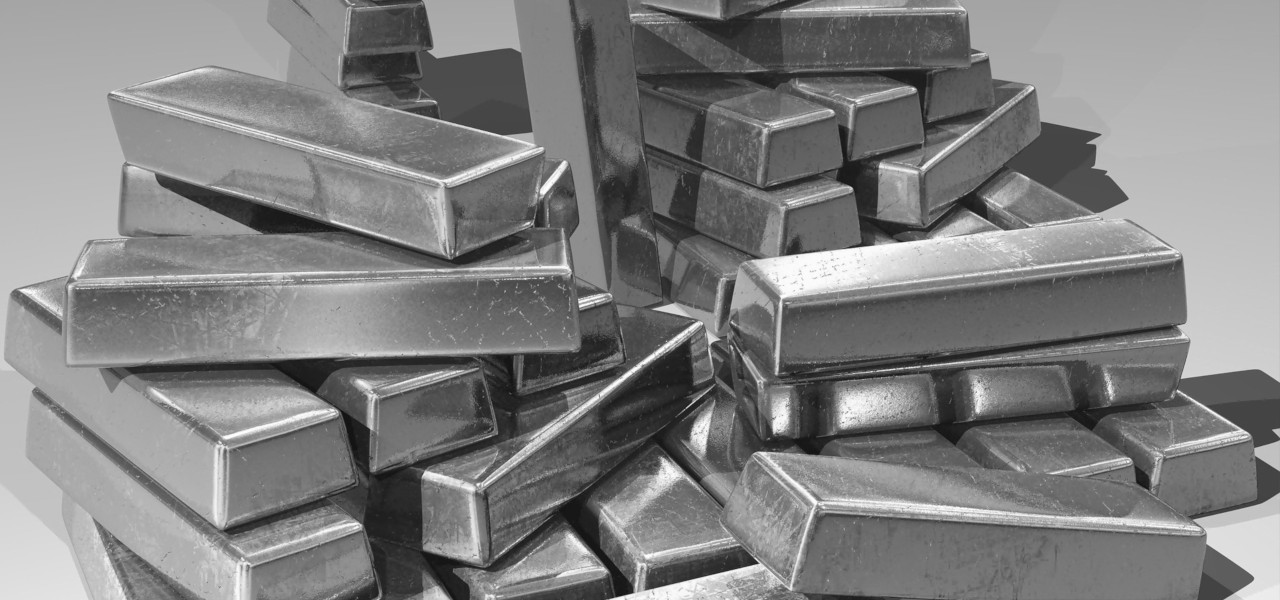The best-performing metal of 2018 is well on track to continue crushing records throughout 2019: As of this writing, palladium is trading at $1,408.30 an ounce, while its closest competitors, platinum and gold, trade at $788.95 and $1,308.35, respectively.
Why the increasing demand for palladium? It’s all connected to the growth in hybrid electrical vehicles, driven by numerous factors, from legislative regulations to consumers’ environmental concerns.
A Precious Metal
Palladium is the key ingredient in catalytic converters, “which convert as much as 90% of the harmful gases in automobile exhaust (hydrocarbons, carbon monoxide, and nitrogen dioxide) into less noxious substances (nitrogen, carbon dioxide and water vapor).” While electric vehicles may be all the rage, with rock star companies like Tesla dominating the headlines, hybrid vehicles remain an attractive proposition for companies and consumers as they represent a less drastic adjustment in production methods and price point.
The Hybrid Vehicle Market Is Booming
The global hybrid cars market is estimated to reach a valuation of US$398.90 bn by the end of 2024. While the emissions from hybrid vehicles is much less than pure fossil-fuel powered cars, palladium is still required to clean up the emissions that do exist.
Diesel Dies, Hybrid Rises
 The demand for hybrid vehicles is expected to increase even more as government regulations push diesel powered vehicles off the road. Legislation from many European governments, that provide incentives and tax breaks to both the companies that manufacture hybrid vehicles and consumers who purchase them, is expected to further damage the diesel vehicle market while elevating the hybrid. Diesel vehicle sales in Britain dropped by 30% in 2018.
The demand for hybrid vehicles is expected to increase even more as government regulations push diesel powered vehicles off the road. Legislation from many European governments, that provide incentives and tax breaks to both the companies that manufacture hybrid vehicles and consumers who purchase them, is expected to further damage the diesel vehicle market while elevating the hybrid. Diesel vehicle sales in Britain dropped by 30% in 2018.
An October report by JP Morgan Chase said electric vehicles and hybrids are forecast to grow to 30% of all vehicle sales worldwide by 2025. That’s a massive jump from their 2016 numbers, where plug-in electric vehicles made up less than 1% of global vehicle sales.
Demand For Palladium Will Only Grow
There is some concern that the limited supply of palladium will lead some automakers to use its cousin, platinum, but Anton Berlin, head of analysis and market development at Norilsk Nickel PJSC, says this shift will take too much time to be viable. Additionally, palladium is more resistant to higher temperatures, which obviously make it a better choice for use in the high-temperature environment of the engines in hybrid vehicles.
Ore deposits of palladium are quite rare. The world’s largest deposits are in South Africa and the Norilsk Complex in Russia, as well as in Montana and in Northern Ontario, Canada. Scrapped catalytic converters are also a major source of recycled palladium.
While palladium mining in Russia and South Africa is expected to decline due to US sanctions against Russia, sources of the metal in Canada will keep the total supply about level. Canadian company Declan Cobalt, already on the cutting edge of supplying precious metals to the sustainable energy auto industry, has once again positioned itself well in its recent purchase of a palladium mine.
 Declan is already a major player in the ethical cobalt game. Cobalt, a key ingredient in EV battery production, is a hotly contested metal due to 60% of the world’s supply coming from inhumane “artisanal” mines in the Congo, where unethical practices such as child labour are rampant. Declan’s copper/cobalt mine on the German/Czech border is well-situated to provide the vital material to such EV vehicle producers as Volkswagen. This new acquisition of a palladium mine will only strengthen Declan Cobalt’s position as a leading provider of precious metals as the vehicle industry continues to ride out this tectonic shift towards hybrid and electric vehicles.
Declan is already a major player in the ethical cobalt game. Cobalt, a key ingredient in EV battery production, is a hotly contested metal due to 60% of the world’s supply coming from inhumane “artisanal” mines in the Congo, where unethical practices such as child labour are rampant. Declan’s copper/cobalt mine on the German/Czech border is well-situated to provide the vital material to such EV vehicle producers as Volkswagen. This new acquisition of a palladium mine will only strengthen Declan Cobalt’s position as a leading provider of precious metals as the vehicle industry continues to ride out this tectonic shift towards hybrid and electric vehicles.
Palladium Demand Exceeds Supply
Palladium demand exceeded supply for the seventh year in a row in 2018 and there is no sign of this stopping. This bullish outlook on the precious metal is entirely justified by its essentiality in the production of hybrid electric vehicles. As consumers grow more concerned with the impact of exclusively fossil fuel powered vehicles, governments are catching up in providing tax breaks other incentives to both consumers and vehicles to produce EV and hybrid vehicles. While recycling existing catalytic converters will provide a portion of the required palladium for these endeavors, the need for the raw material itself will only increase as we enter the 2020s.
(Note: In this article we mention Declan Cobalt. Declan Cobalt is a client of TrendScan and members of the TrendScan team own options to stock in Declan Cobalt.)
